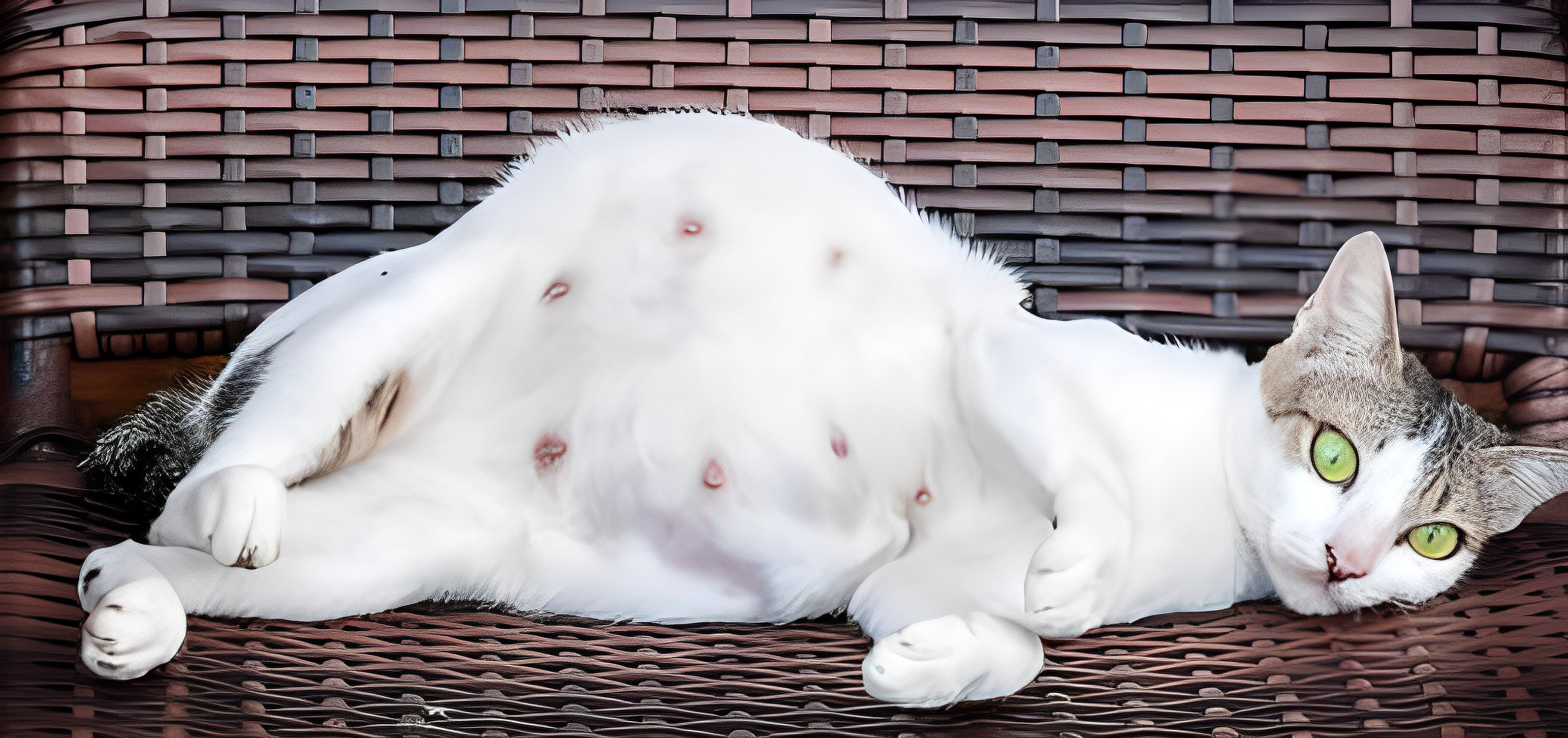Welcoming a new generation of kittens into your home is an exciting and heartwarming experience. Just like human mothers, pregnant cats require special care and attention to ensure a healthy pregnancy and the birth of robust, adorable kittens. In this comprehensive guide, pet barn will delve into the essential aspects of caring for a pregnant cat, focusing on exercise, rest, and stress management, as well as other crucial considerations to ensure the well-being of your feline companion during this special time.
1. Exercise: Keep it Gentle
Exercise is a vital component of any cat’s life, including pregnant cats. However, during pregnancy, you need to be particularly mindful of the type and intensity of exercise. Vigorous activities should be avoided, as they can put undue stress on the expectant mother and her developing kittens. Instead, opt for gentle playtime sessions and short walks to help maintain her muscle tone and flexibility.
Interactive play with toys like feather wands, laser pointers, or soft balls is an excellent way to keep her stimulated without overexertion. Monitor her closely during playtime and avoid activities that could lead to accidents or falls. As her pregnancy progresses, you’ll notice that she becomes less agile, so it’s essential to adjust the intensity of exercise accordingly.
2. Rest: Create a Comfortable Nest
Pregnant cats require plenty of rest to support their growing bodies and the developing kittens. As her due date approaches, your feline friend will need a quiet and cozy space where she can relax and unwind. Consider providing a designated nesting area filled with soft blankets or a comfortable cat bed. Cats often become more affectionate during pregnancy, so providing ample cuddles and attention will help reassure her and encourage relaxation.
Ensure that this nesting area is in a peaceful part of your home, away from household noise and disturbances. Minimize disruptions to her rest by maintaining a calm environment. This will not only benefit her but also contribute to the health and development of the kittens.
3. Nutrition: The Right Diet Matters
Proper nutrition is crucial during pregnancy to ensure the health of both the mother cat and her kittens. Transition her to a high-quality, balanced cat food formulated for pregnant or nursing cats. These specialized diets contain the extra nutrients and calories needed for a healthy pregnancy and lactation.
Always consult your veterinarian for guidance on the right diet and feeding schedule for your pregnant cat. They can help you determine the appropriate amount of food and the best brands for your cat’s unique needs. Be prepared to adjust her diet as her pregnancy progresses, and she requires more calories to support her growing family.
Consider feeding her smaller, more frequent meals to accommodate her changing nutritional needs. This can also help prevent her from overeating and experiencing digestive discomfort. Fresh water should always be readily available to keep her hydrated.
4. Stress Management: Keep Calm and Kitty On
Stress can have detrimental effects on a pregnant cat, leading to complications and even miscarriages. Minimize stressors by maintaining a calm and quiet environment. Limit exposure to loud noises, sudden changes, and aggressive or unfamiliar animals. Pregnant cats are generally more sensitive to their surroundings, so try to keep their environment as stable as possible.
If you need to make any adjustments to her living situation, do so gradually. Whether it’s rearranging furniture or introducing new pets, take care to minimize stressors during this critical time. Provide her with a safe and stress-free environment that promotes relaxation and tranquility.
5. Regular Veterinary Check-ups
Regular veterinary check-ups are essential during a cat’s pregnancy. Your veterinarian can monitor her health, estimate the number of kittens, and address any potential complications. These check-ups also provide an opportunity to discuss any concerns or questions you may have about the pregnancy.
Be sure to discuss the timing of vaccinations and parasite control with your vet, as some treatments may need to be postponed until after the kittens are born. Your veterinarian will advise you on the best approach to ensure the health of both the mother cat and her offspring.
Regular check-ups will also help you stay informed about the progress of the pregnancy and any necessary interventions. Your vet can guide you through the various stages of pregnancy and prepare you for what to expect as the due date approaches.
6. Preparing for Labor
As your cat’s due date approaches, you’ll want to prepare for labor and delivery. Consult with your veterinarian about signs of impending labor and what to expect during the birthing process. It’s essential to have a plan in place and be ready to provide the necessary support.
Create a quiet, secluded area for her to give birth, lined with clean towels and blankets. Ensure that this space is easily accessible and that she feels safe there. Cats often prefer privacy during labor and may seek out a hidden spot.
Be prepared to provide assistance if needed but try not to intervene unless absolutely necessary. Mother cats are typically very capable of handling the birthing process on their own. Keep a close eye on her and the kittens in the hours following birth to ensure they are nursing and thriving.
7. Postnatal Care and Kitten Socialization
After the kittens are born, your role in caring for the mother cat continues. Ensure that she has a quiet and safe place to nurse and care for her kittens. Monitor the kittens’ weight gain and general health, as well as their mother’s recovery.
Around three to four weeks of age, you can start introducing the kittens to solid food, but always consult with your vet for guidance on the appropriate timing and type of food. Socialization is also crucial during this stage, as it helps kittens become well-adjusted and friendly adult cats. Handle the kittens gently and allow them to interact with people and other cats in a controlled and safe manner.
Caring for a pregnant cat is a rewarding experience that requires attention to her physical and emotional needs. By ensuring gentle exercise, providing ample rest, managing stress, and offering proper nutrition, you can help your feline friend have a healthy pregnancy and deliver a litter of adorable kittens.
Remember that consulting with your veterinarian throughout the pregnancy is essential to address any concerns and ensure the best possible outcome for both mother and kittens. With the right care and love, you can look forward to the joyous arrival of a new feline family in your home and enjoy the journey of watching them grow and thrive.
As you embark on this wonderful journey with your pregnant cat, you are not just caring for her but also contributing to the well-being of future generations of feline companions. Cherish these moments, and may your home be filled with the purrs and playfulness of healthy, happy kittens in the near future.

